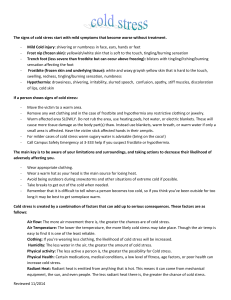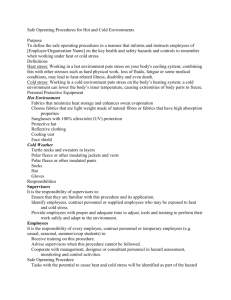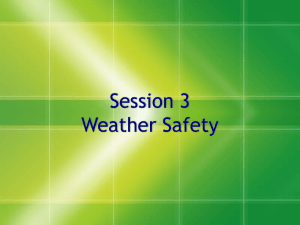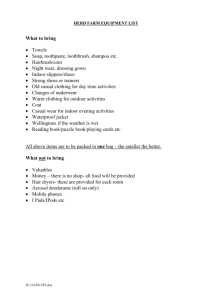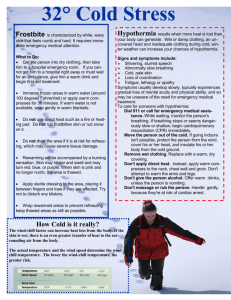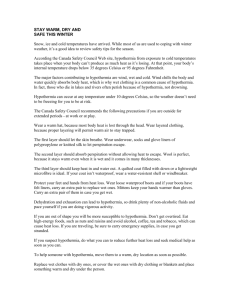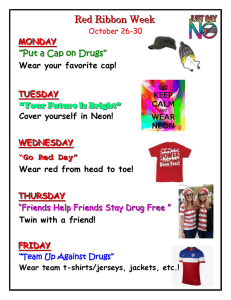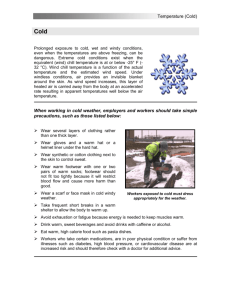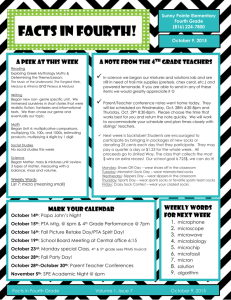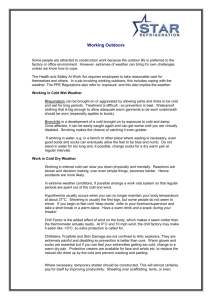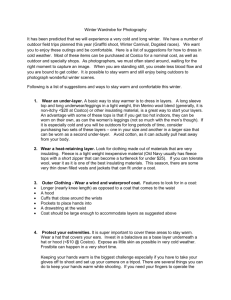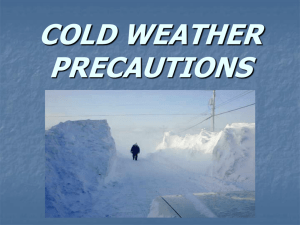Tips for Weathering Winter Cold Stress
advertisement
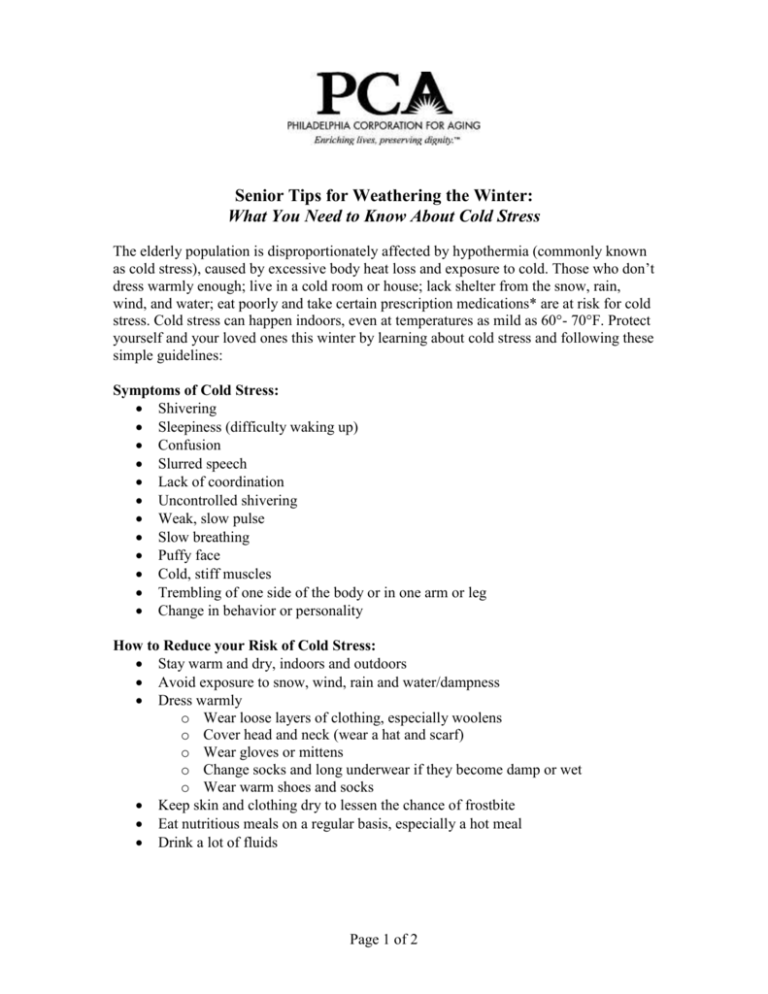
Senior Tips for Weathering the Winter: What You Need to Know About Cold Stress The elderly population is disproportionately affected by hypothermia (commonly known as cold stress), caused by excessive body heat loss and exposure to cold. Those who don’t dress warmly enough; live in a cold room or house; lack shelter from the snow, rain, wind, and water; eat poorly and take certain prescription medications* are at risk for cold stress. Cold stress can happen indoors, even at temperatures as mild as 60°- 70°F. Protect yourself and your loved ones this winter by learning about cold stress and following these simple guidelines: Symptoms of Cold Stress: Shivering Sleepiness (difficulty waking up) Confusion Slurred speech Lack of coordination Uncontrolled shivering Weak, slow pulse Slow breathing Puffy face Cold, stiff muscles Trembling of one side of the body or in one arm or leg Change in behavior or personality How to Reduce your Risk of Cold Stress: Stay warm and dry, indoors and outdoors Avoid exposure to snow, wind, rain and water/dampness Dress warmly o Wear loose layers of clothing, especially woolens o Cover head and neck (wear a hat and scarf) o Wear gloves or mittens o Change socks and long underwear if they become damp or wet o Wear warm shoes and socks Keep skin and clothing dry to lessen the chance of frostbite Eat nutritious meals on a regular basis, especially a hot meal Drink a lot of fluids Page 1 of 2 What To Do in an Emergency: DO call 9-1-1 for medical assistance DO cover head and neck DO wrap in blankets, towels, extra clothes, or newspaper DO handle the person gently DO warm the person gradually DO take off wet clothes and provide warm, dry clothing -moreWhat Not To Do in an Emergency: DO NOT give hot drinks or hot food DO NOT give alcohol or medications DO NOT bathe or shower DO NOT rub or massage arms or legs If taking medication for high blood pressure, nervousness, depression, poor circulation or sleeplessness, talk about hypothermia/cold stress with your doctor. For more information and referral to energy assistance programs and other community resources please call the Philadelphia Corporation for Aging (PCA) Helpline at 215/7659040 or visit www.keepseniorswarm.org. ### Page 2 of 2
